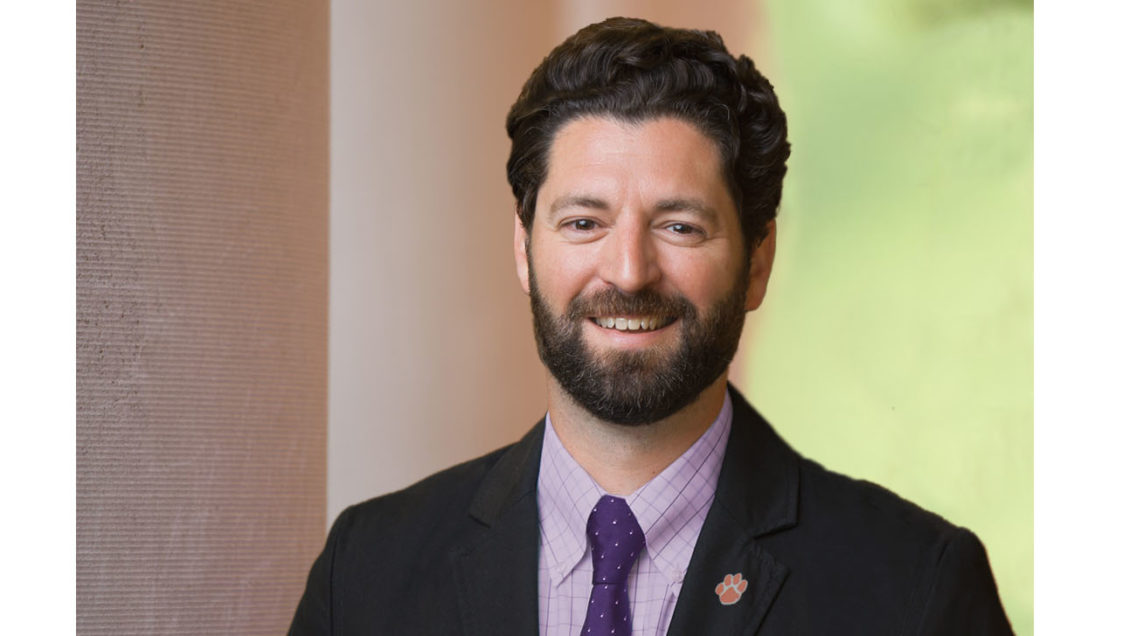Whether you donate to charities at the retail checkout counter due to guilt, or out of the goodness of your heart, chances are the “warm glow” it creates will likely result in you repurchasing from that business, according to a Clemson University business school researcher.

So-called “checkout charity” is a phenomenon where customers are asked by frontline employees, or its payment technologies, if they want to make a charitable contribution along with their purchase.
Mike Giebelhausen, an associate professor of marketing in the College of Business, said despite its growing ubiquity, little research has been explored about the service experience in these small corporate social responsibility exchanges at checkout.
“Our research examined checkout charity in the context of fast-food restaurants and finds that when customers donate they experience a ‘warm glow’ that mediates a relationship between donating and store repatronage,” he said.
A 2016 study by Good Scout, a digital marketing agency, found 71 percent of those surveyed had donated to charity at the register. The survey showed only a slight majority of 55 percent liked being asked to donate at checkout. Of the 45 percent of those who don’t like being asked, 35 percent of the respondents admitted giving to avoid feeling guilty.
Giebelhausen said retail managers often infer, quite correctly, that consumers do not like being asked to donate. However, his study’s results suggest what is considered a negative experience by some can increase service patronage.
“Furthermore, from an academic standpoint, this study’s results add to a growing body of literature refuting the notion that small social behaviors that benefit society as a whole can alter an individual’s self-concept,” he said.
Though many consider checkout charity a controversial practice, it has shown to be very effective in raising money for non-profits. According to a 2014 study, the top 77 corporate social responsibility programs at checkout collected $388 million from consumers. And, the prevalence of this controversial practice is on the rise.
“In a field study, where fast-food customers were randomly asked to donate, donors reported approximately 11 percent higher intentions to revisit the restaurant compared to a control condition,” Giebelhausen said. “Interestingly, the difference between the control condition and those who elected not to donate was statistically insignificant. This suggests that the potential downside of these programs is not as great as many managers might fear.”
Giebelhausen added the results were consistent with findings from a follow-up study of weekly revenues across the entire fast-food chain. This study, controlling for store size and age, found that if a store were to average a 5 percent donation per order, overall sales would increase by $791.91 the following week.
Many front-line employees are unmotivated and uncomfortable about soliciting donations at checkout. Likewise, a significant number of consumers dislike the practice and will participate to avoid the guilt associated with refusing. But Giebelhausen said this emerging form of corporate social responsibility that has customers being the socially responsible parties, is succeeding on several fronts.
“Despite some negative reactions from employees and customers, our study suggests a phenomenal amount of money is being raised through checkout charity and that CSR initiatives have the potential to increase sales without there being a cost to customer satisfaction,” Giebelhausen added.
Giebelhausen was joined in the research by Benjamin Lawrence and HaeEun “Helen” Chun of Cornell University and Liwu Hsu of the University of Alabama-Huntsville.
# # #
Get in touch and we will connect you with the author or another expert.
Or email us at news@clemson.edu

